Note
Sorry not an animal related question, are you okay with people screenshotting your blogs and posting them on other platforms/tiktok?
I mean, it’s a public page, so I can’t really stop you.
#it freaks me out a little because facebook/instagram/twitter/tiktok are much larger platforms#and people on tumblr are a lot more open to learning I’ve found#my brief stint on instagram did not last#my notifs were clogged with comments about how stupid and evil I am for supporting the torture of intelligent creatures#because yeah that’s definitely what I do#(heavy sarcasm)#answered asks#anoymous
8 notes
·
View notes
Text
So... it seems I accidentally deleted an ask rather than answering it. To whoever asked "is it okay to visit SeaWorld? Does the money go to giving the orcas good care?"... here is your answer!
The SeaWorld parks, as well as Busch Gardens, Discovery Cove, and a few others, are operated by the recently renamed United Parks and Entertainment, a for-profit theme park company. Like any other corporation, their first goal is to remain profitable. Obviously, a large portion of that goes to corporate leadership and shareholders. But that's far from unique to United, or theme parks in general. It's a byproduct of the greedy world we live in. If you're willing to buy a ticket to Disney or Six Flags, then buying a ticket to a SeaWorld or Busch Gardens is no more immoral.
According to the AZA, approximately 77% of their members are for-profit. And while AZA zoos certainly vary in quality (anywhere from "acceptable" to "exceptional" in my opinion), for-profit status does not cheapen or detract from the work they do. In fact, for-profit institutions often have more financial freedom for animal care and conservation efforts than their non-profit counterparts. Non-profit zoos and aquariums are wonderful places, but believe me when I say there's a startling amount of politics in every aspect of their management. Non-profit status does not automatically make a zoo better, and for-profit status does not automatically make a zoo worse.
Now... do SeaWorld ticket sales go toward giving their orcas (and other animals) good care? Yes.
While it's certainly simplistic for parks to claim, as they do, "just by buying a ticket today you're helping save animals in the wild!"... it's not exactly a lie. Being for-profit, SeaWorld doesn't ask for donations to fund park operations or outreach endeavours. That revenue is generated by selling tickets, merchandise, food, etc. The same goes for their wildlife rescue and rehab program, Rising Tide conservation program, Coral Rescue Center, and the SeaWorld-Busch Gardens Conservation Fund, as well as partner organizations like OCEARCH and the Hubbs-SeaWorld Research Institute.
Take ticket sales away, and they can't care for their animals, or continue to fund conservation projects. While I don't know the whole story of what exactly is going on with Marineland Antibes, it appears that the park is in a dire financial situation due to plummeting attendance, to the point that they can no longer maintain their killer whale habitat and are trying to offload their animals onto an Asian aquarium or, potentially, an as-of-yet non-existent third party sea pen. While certainly well-meaning, years of boycotts against Marineland ultimately put their animals in a position where they are not being properly cared for. And it would be horrifying if the same thing happened to SeaWorld. I don't think many people, in their fervor to punish the parks for their perceived misdeeds and save the animals, thought about what the reality of driving a zoological facility into financial ruin would look like.
Don't get me wrong, SeaWorld's shift toward promoting itself as a thrill park that also does conservation rather than a marine facility that happens to have roller coasters annoys me. I would have rather they built a separate, neighboring park for the rides, or at least integrated them into the existing park less obtrusively (Disney's Animal Kingdom, for example, seemlessly integrates the theme park and zoo elements, although they have the benefit of the incredibly talented Imagineering team behind them). But as tiresome as the constant roller coaster announcements are, they are what kept the company afloat financially in the years immediately following Blackfish, drawing in a crowd that previously had no interest in the parks, and for that I'm grateful. Thankfully, SeaWorld is in a better spot nowadays. But the only way to convince them that their animals, not their roller coasters, are what people want to see... is to visit and see the animals.
In short, yes, part of your SeaWorld ticket funds care for their orcas and their many admirable projects. Now if only more of it went to giving their staff better salaries.
#their staff make less money than a lot of other major theme parks#the animals have great care... the people uh...#not as much#seaworld#zoos#aquariums#conservation#answered asks#anonymous
27 notes
·
View notes
Photo

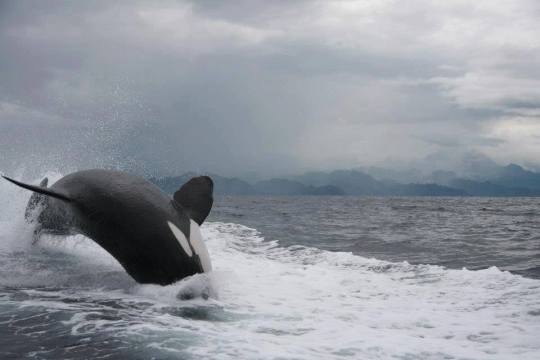
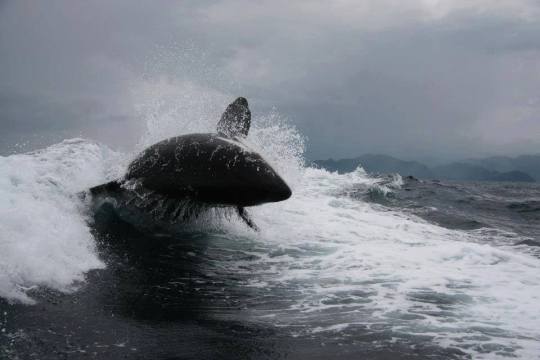
Photos by Marisol Jenkins of an orca riding in a boat’s wake off of Baja California, Mexico.
94K notes
·
View notes
Text
She’s out! Early this morning, Kwiisahi?is swam out of the lagoon of her own accord and is back in open water. Now it’s up to her. Let’s hope she finds her family soon!
A plan is now in motion to airlift the 2-year-old orphaned orca calf trapped in a Canadian lagoon following the death of its mother to a sea pen, in hopes of releasing it when its family (a known pod of Bigg’s transient orcas) pass by. This is similar to what was done with Northern Resident orca “Springer,” who was successfully released and has gone on to live a normal wild life (even raising two calves!) Best of luck to this baby and everyone involved!
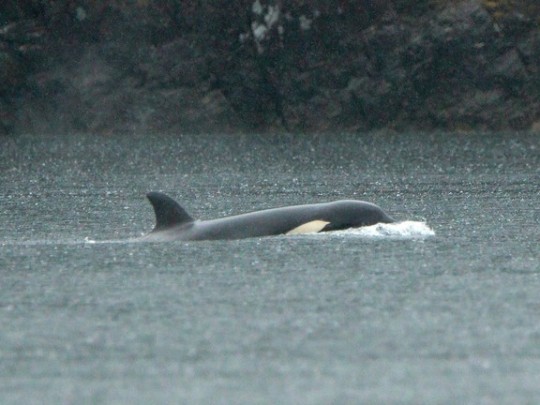
132 notes
·
View notes
Text

22K notes
·
View notes
Text
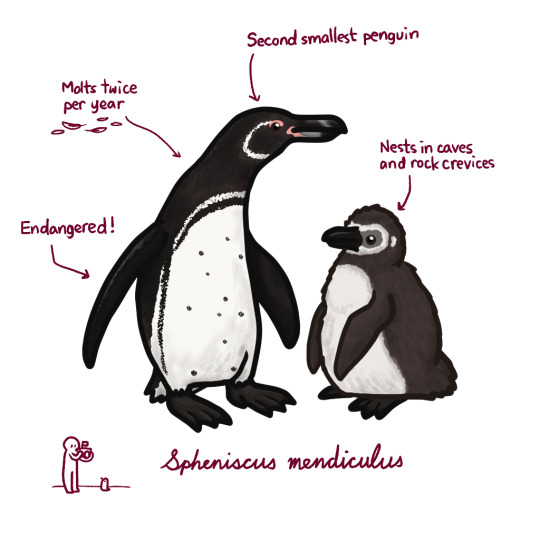
The Galápagos penguin is endemic to the Galápagos Islands and is the rarest penguin. Because they can't breed when ocean surface temperatures are above 25C, they're especially affected by climate change. Ecotourism is also a threat, due to littering and irresponsible birdwatching.
787 notes
·
View notes
Text
One of the interesting things I learned about zoo history is that the reason so many exhibits used to be barren or floored with concrete was because keeping the animals clean kept them alive.
It wasn’t that people wanted to keep them in horrible conditions - it was that before we knew much about exotic animal medicine, all we knew is that the more thoroughly we could clean, the less they’d die. Then the tendency towards tradition that’s prevalent in animal care fields kicked in, and it took forever to shift away from that type of construction even as knowledge was gained.
#the history of shedd aquarium is so fascinating because#that place is over 90 years old#far pre-dating modern filtration systems#so the fish tanks were originally very barren#since they had to manually change the water out CONSTANTLY#this was also before instant ocean so fresh seawater was brought up from the coast by train#and the back of house areas all have massive skylights that provided the tanks lighting before electric lights were widespread#queue#zoos
4K notes
·
View notes
Text
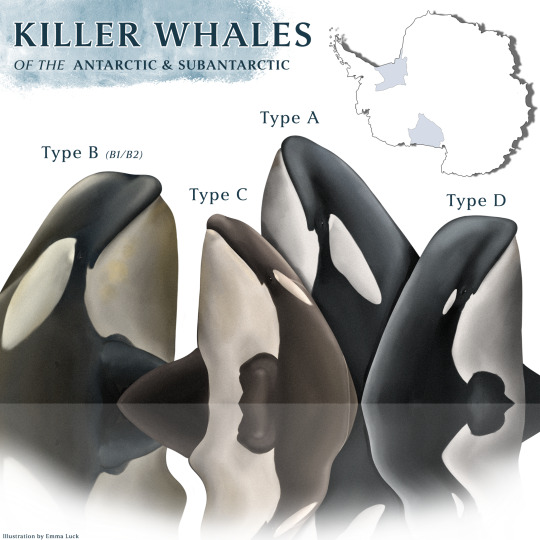
I love the diversity of Southern Ocean killer whales 🫶
106 notes
·
View notes
Text
so many people do not understand that 1) animals are not people, and 2) they aren't teaching their animals what they THINK they are teaching them.
dog group on the book of faces, someone is asking for advice on how to get their dog to come to them after the dog is done relieving itself outside. The dog doesn't like coming to them an they spend ten or twenty minutes or more catching the dog each time to bring it in. Which reminded me of one of many attempts to talk a person through trying to fix exactly this same behavior in *many* other dogs over the years...
Me: So, a quick question for you... does the dog not coming to you and you having to chase them down frustrate you?
Them: Of course!
Me: So what do you do when you finally either catch the dog or get them to come to you?
Them: I give the dog a correction!
Me: So. You get hands on your dog and then you immediately punish them for allowing you to get hands on them. And you wonder why your dog has developed the habit of not coming to you?
Them: No, that's not... I'm punishing them for not coming when I call!
Me: Which was.... fifteen minutes ago, or so, you said?
Them: Yes, when I first called them!
Me: Dogs brains literally cannot link an abstract thought like that. A thought and a consequence MUST happen within 2.4 seconds of one another, or the consequence becomes linked to the most recent behavior, thought, or activity. So, tell me... how is your dog supposed to understand that you punishing them is for the event fifteen minutes ago when you have made such a concerted, if unintentional, effort to teach them that them getting close enough for you to lay hands on them in the yard means an immediate punishment?
Them: But that's not what I *meant*!
Me: Doesn't matter what YOU meant... what THEY learned is that they come to you, and they get punished. Stop punishing your dog for the behavior that you want to see more of.
Stop anthropomorphizing your animals, folks. They don't think like us. Stop setting them - and yourself - up for failure.
#very important#and why positive punishment is extremely difficult to utilize effectively#to the point I don’t really trust anyone to use it in training#queue#dogs#pets#anthropomorphism#animal training
23K notes
·
View notes
Text
@scoutsmoocrew living the real large animal vet life tonight getting called in for a midnight cow dystocia ✌️
16 notes
·
View notes
Text
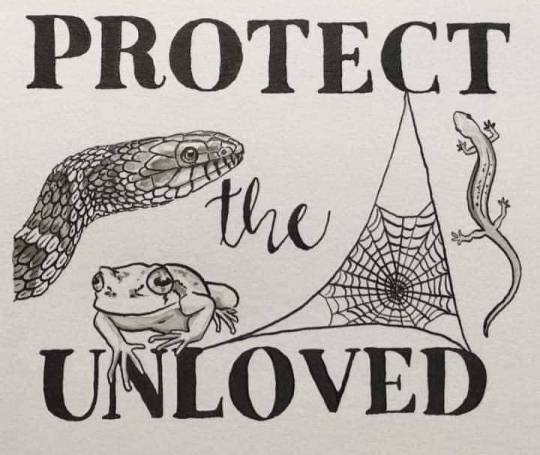
#YES#especially snakes#my beloved noodles#queue#snakes#frogs#lizards#spiders#reptiles#amphibians#invertebrates#art
18K notes
·
View notes
Text
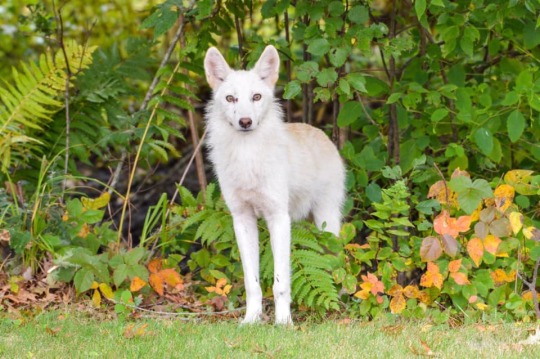
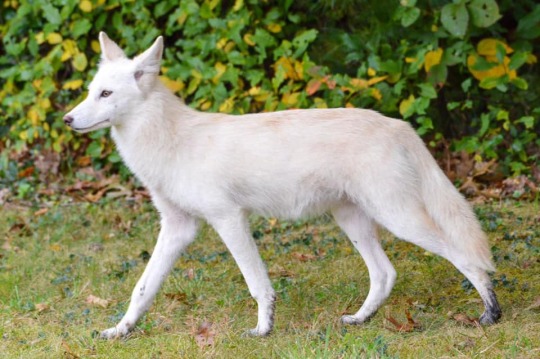
Leucistic Coyote in Falmouth, Virginia [x]
11K notes
·
View notes
Text
Turned off my askbox until I can get caught up.
#turning them off again#I'm up to 10 and I feel like it's getting ahead of me#also graduation and moving are happening next week#askbox
16 notes
·
View notes
Text
Why did no one tell me llamas sound like sheep?
#I don’t know what I thought they sounded like but it wasn’t a tiny adorable little lamb#llamas#camelids#vet student#vet school#vetblr
16 notes
·
View notes
Text
802 notes
·
View notes
Text
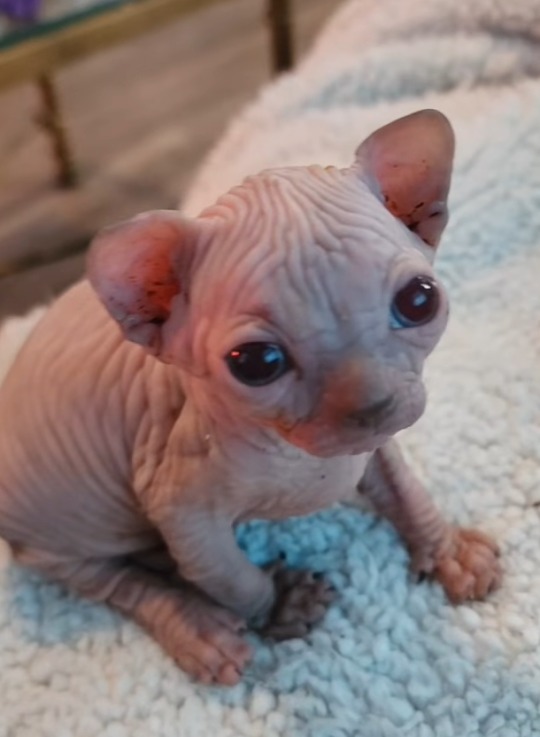

38K notes
·
View notes
Text
Vaquitas are indeed the world’s smallest cetacean! But this individual appears to be a calf. It still has “fetal folds”—those linear marks on its side—from being curled up in its mother’s womb. This is how large an adult is compared to a human:
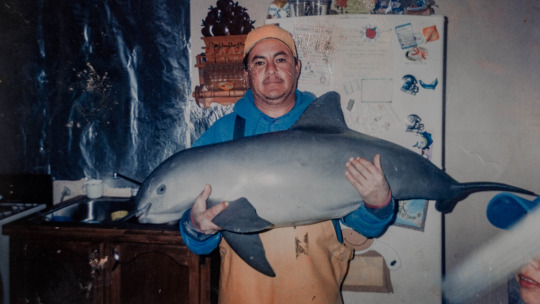
Tragically, vaquitas are also the most endangered cetacean in the world. Irresponsible fishery practices have reduced their numbers to approximately 10 individuals in 2024.
You can learn more about vaquitas and how to help them at VaquitaCPR.
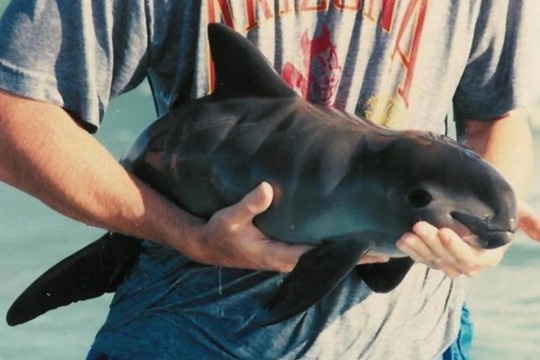
let’s hear it for the world’s smallest whale (the vaquita) you guys!!
31K notes
·
View notes